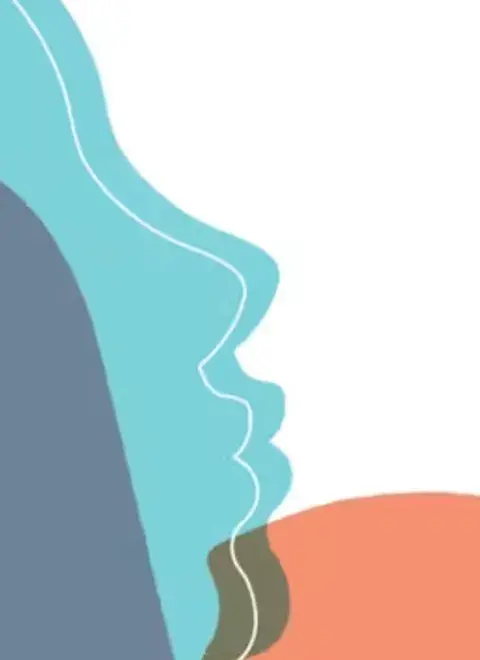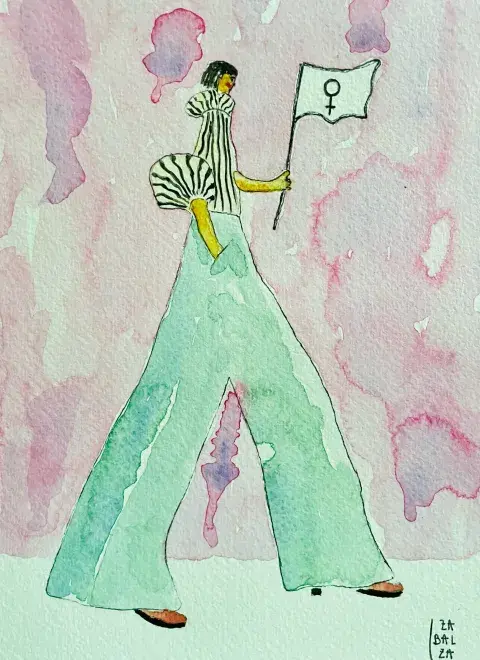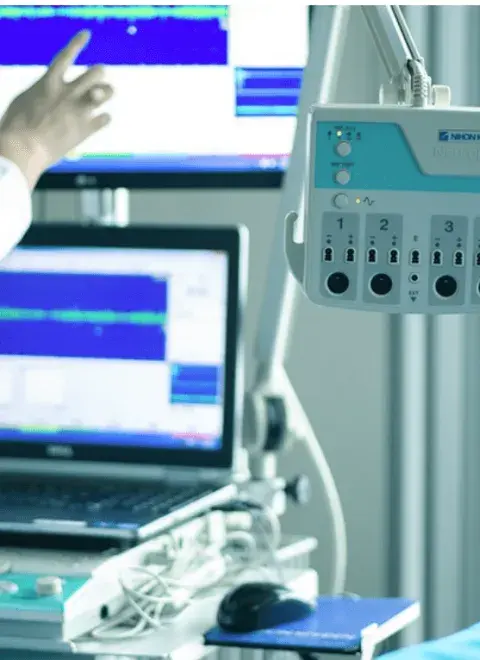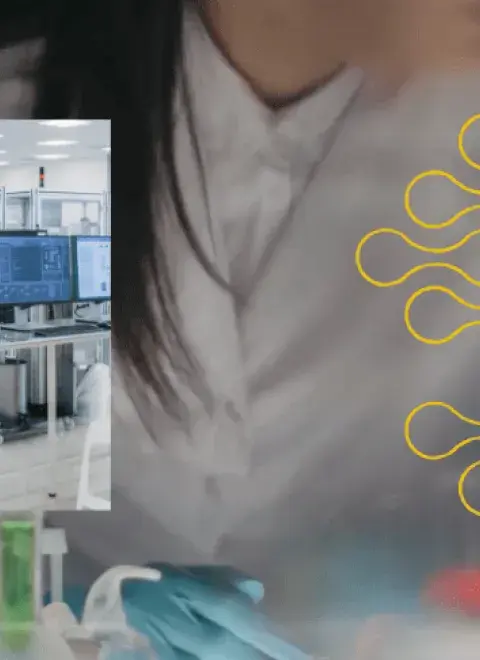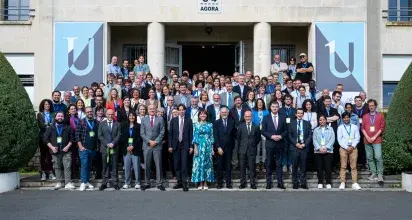
Domaine Haut Carré, Universidad de Burdeos. Foto de grupo EHU Euskampus Bordeaux Eguna, 2024. © Gautier DUFAU
- Actualidad
EHU Euskampus Bordeaux Eguna, constellations with exponential growth
EHU Euskampus Bordeaux Eguna 2024, first held 10 years ago, brought together around 250 people on 14th and 15th October at the University of Bordeaux Haut Carré, Talence.
The Cross-border Campus of the University of the Basque Country (UPV/EHU) and the University of Bordeaux (UB) celebrated its tenth anniversary at EHU Euskampus Bordeaux Eguna, the community meeting, which took place on 14th and 15th October at the University of Bordeaux (Domaine du Haut Carré, Talence). This annual event serves to share, give visibility to and highlight all the projects and collaborations developed within the framework of the cross-border campus, a unique initiative in Europe, as well as to reinforce and extend the collaboration networks and promote multicultural, multilingual and transdisciplinary cohesion, which are the hallmarks of the cross-border campus.
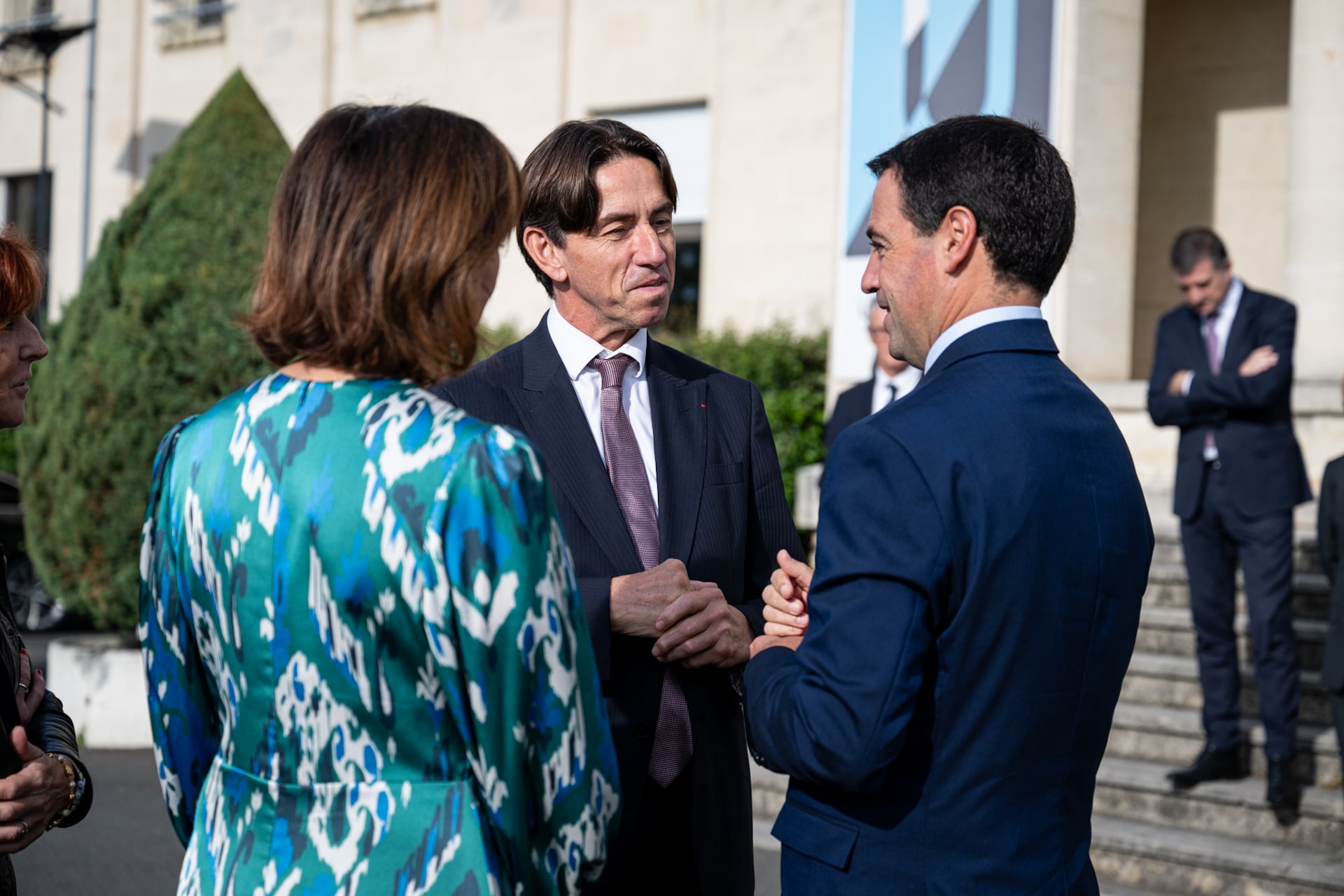
Eva Ferreira, Dean Lewis and Imanol Pradales, President of the Basque Government/Eusko Jaurlaritza © Gautier DUFAU
The event’s opening session at 11.30am on 14th October was attended by the President of the Basque Government Eusko Jaularitza, Imanol Pradales; the Basque Government's Minister of Science, Universities and Innovation, Juan Ignacio Pérez Iglesias, and the Vice-President for Higher Education and Research of the Regional Council of New Aquitaine, Gérard Blanchard, among others. Members of the Euskampus Board of Trustees, such as the President of the University of Bordeaux, Dean Lewis, the Rector of the University of the Basque Country, Eva Ferreira, Ricardo Díez, Director of the Donostia International Physics Center (DIPC), and Jesús Valero, Managing Director of Tecnalia, also participated. Councillor Céline Papin attended on behalf of the city of Bordeaux.
About the Euskampus Bordeaux Cross-Border Campus
The Cross-Border Campus aims to provide students, teaching and research staff and administrative and service staff with a unique teaching, learning and training environment; to establish a leading cooperative research area in Europe and to promote territorial ecosystems based on knowledge and innovation in conjunction with companies, social organisations, public administrations and citizens. Imanol Pradales participated in the event’s opening ceremony, expressing his satisfaction with the results of the Euskampus project. This project came about 10 years ago "with the aim of joining forces to address shared challenges. Thanks to this vision, excellent results have been obtained in education, research, connection with actors, and greater projection and international recognition", said the Basque President.
Eva Ferreira underlined that the partnership established with the University of Bordeaux has become "a constituent element of our identity as a training and research institution. It is a partnership that looks at the long term. There are no truly ambitious projects that can be deployed with short-sightedness, because one of the foundations of ambition is far-sightedness, flying high, the ability to anticipate and plan”. After 10 years, the Rector of the Basque public university considers that the most difficult period in the consolidation of any project has been overcome. "And, after crossing the desert, comes exponential growth. Our strategic alliance is already in the best position to not only continue to bear fruit, but also to see it multiply", she concluded.
The Basque President highlighted the important role played by the universities. "Universities have a dual mission: to collaborate and to socialise collaboration. We know that the creation of advanced knowledge is a fundamental component of university activity. We know that in order to create this knowledge, teamwork is essential.
In the words of the President of the Basque Government: "Euskampus has brought flexibility and dynamism. It has also connected groups from diverse disciplinary backgrounds and has driven innovative academic projects with a high social impact”. Imanol Pradales is committed to strengthening this path, "because in the industrial and economic rebirth of Europe, the most advanced regions in science, research and knowledge will be nodes of connection, development and growth. We cannot be left behind. I see Euskampus as the spearhead that should guide our commitment to the Atlantic axis".
The event started with a stimulating video that showed the history of the cross-border event over the past 10 years, as well as a retrospective of the campus’ most significant projects that are active.
Laboratories for Trans-border Cooperation, LTCs.
At the opening session, the vice-rectors for research of the UPV/EHU and the UB publicly announced the new Laboratory for Trans-border Cooperation. This new LTC joins the other 7 existing LTCs, which together with the 16 (11 + five new ones in 2024) LTC incubator projects, make up the LTC Sarea Network, backed by the Basque Government since 2021. The LTCs and LTC incubators cover topics as varied and diverse as physics and chemistry at the nanoscale, applied mathematics, sustainable advanced manufacturing, high-performance cementitious materials, neurodegenetarive diseases and their comorbidity, photonics and pollution of our seas, among others.
This eighth Laboratory for Cross-Border Collaboration (LTC): CannaMetHD, in the field of neuroscience is co-directed by UPV/EHU researcher, Susana Mato, and the UB researcher, Giovanni Marsicano. "The main objective is to extend existing knowledge on the bioenergetic role of cannabinoid compounds in relation to glial cells and their impact on brain function. This project is the result of a long collaboration between 5 laboratories of the UPV/EHU and the University of Bordeaux, experts in the study of the brain's endocannabinoid system, and will facilitate the discovery of new therapeutic agents for the treatment of different neurological diseases.
The CannaMetHD consortium has an important network of collaborators in the academic, clinical and biotechnological spheres, and consolidates the cross-border commitment to research and higher education in neuroscience as fundamental pillars to improve health and healthy ageing in the ecosystem of the Basque Country and the Aquitaine region", explains researcher Susana Mato.
Collaborative projects
Among the achievements of this cross-border campus, the creation of the cross-border community of pedagogical innovation stands out through the Ocean i3 and EmpacT i3 projects, both of which are co-funded by the POCTEFA Programme. It has brought together 50 professors from both universities in which more than 140 projects have been developed by students from 16 different disciplines with the collaboration of 25 actors from the cross-border territory. In turn, a Permanent Challenge Based Education Laboratory (CBE i3lab) has been created. 50 co-tutored theses have been defended and 20 more are currently in progress. The ADAGIO project, part of the European COFUND programme is being developed to finance 15 co-supervised post-doctoral researchers in the field of advanced manufacturing.
Finally, the progress of the Missions Programme was also shared, with 7 cross-border projects, 4 projects in the framework of ENLIGHT, under the seed-funding mechanism, and 7 projects co-funded by the Basque Country-New Aquitaine-Navarre Euroregion. Both universities have promoted and led the creation of the Cross-Border Summer Courses Programme, along with other public universities in the Euroregion.
In the afternoon, there was an interactive retrospective of the past 10 years illustrated by flagship projects presented by some of the key figures, including double master's degrees, the COFUND project to attract co-tutored postdocs, the Cross-Border Summer Courses, the Ocean i3 and EmpacT i3 pedagogical innovation projects and the ENLIGHT Alliance. The day ended with a round table in which the former rectors, Iñaki Gorizelaia, Nekane Balluerka and Manuel Tuñon de Lara, who featured in the early years of this campus, reflected on the path of this shared project since its origins, along with Igor Campillo, Director General of Euskampus Fundazioa.
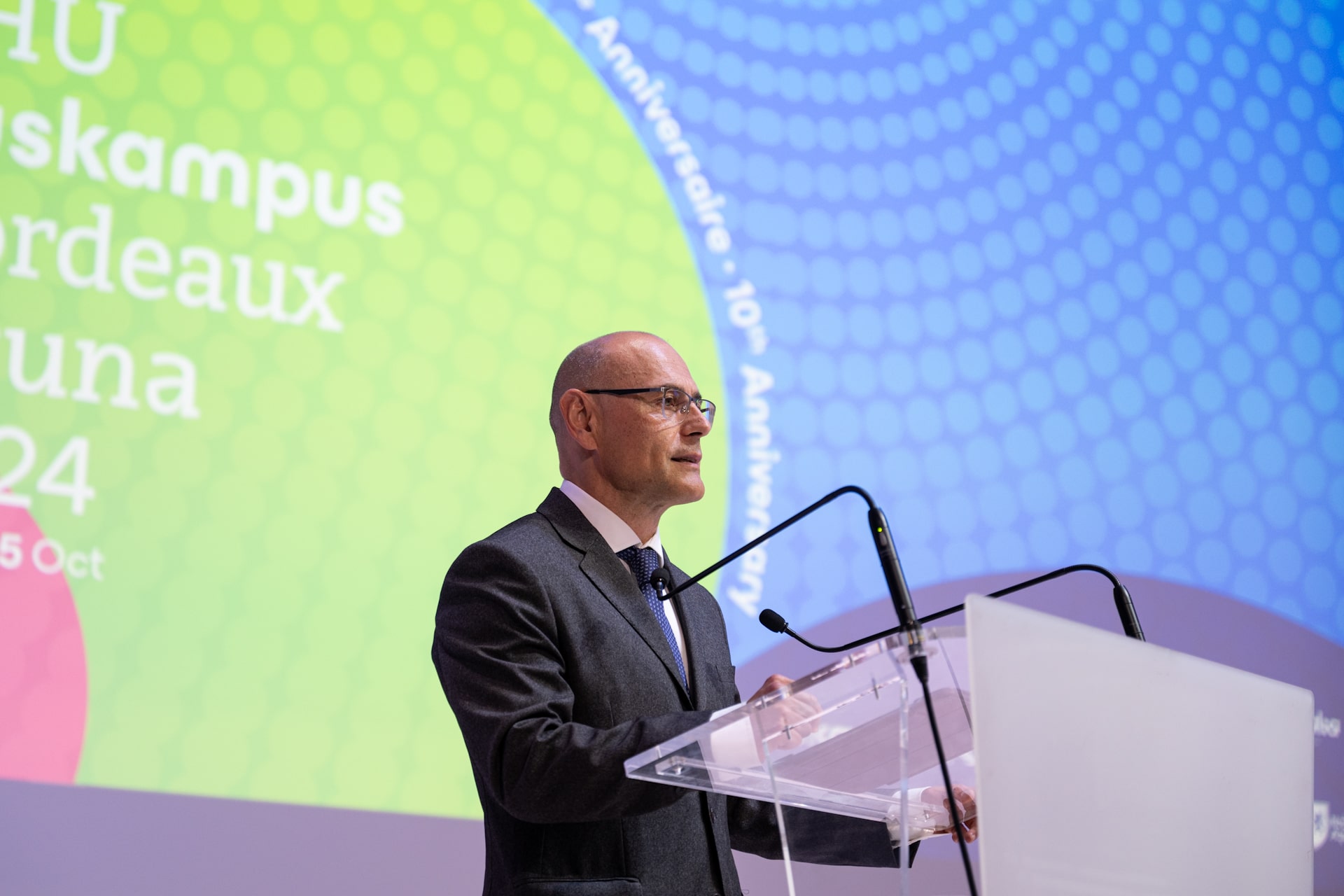
Igor Campillo, Director General of Euskampus Fundazioa during the retrospective of the Cross-Border Campus. © Gautier DUFAU
The activity entitled “My journey on board the Euskampus Bordeaux Campus in 173 seconds, MT173” (15th October in the morning) gave the selected people the opportunity to present the project or initiative they are developing or have developed within the framework of the collaborations between the Euskampus entities, highlighting their experiential aspect in 173 seconds (the distance in nautical miles between Bordeaux and Bilbao). Then, the focus was placed on emblematic university-territory connection initiatives in which the UB and the UPV/EHU are playing a key and decisive role, such as Basque Quantum - BasQ in the Basque Country and Naquidis in New Aquitaine.
ONKO-ON mission was also presented publicly for the first time by Jordi Campás, Deputy Director of Euskampus and Tania Huedo, researcher at the UPV/EHU. It is a collaborative initiative promoted by Euskampus Fundazioa to improve the quality of life of people living with cancer, through an approach of maximum collaboration between universities, research centres, patients, social entities and public administrations with responsibility for health and social action. The boost that both universities are giving to the 'Training and Employability' axis of the Cross-border Campus is also highlighted. This axis focuses on joint collaborative actions to foster the employability and entrepreneurship of students from both universities in the cross-border territory, and is one of the Campus' development priorities over the coming years.
Over the two days, 43 scientific posters were on display in the cloister of the building. An amalgam of projects led by both junior and senior research staff showcased the progress of collaborative research and innovation across multiple disciplines.
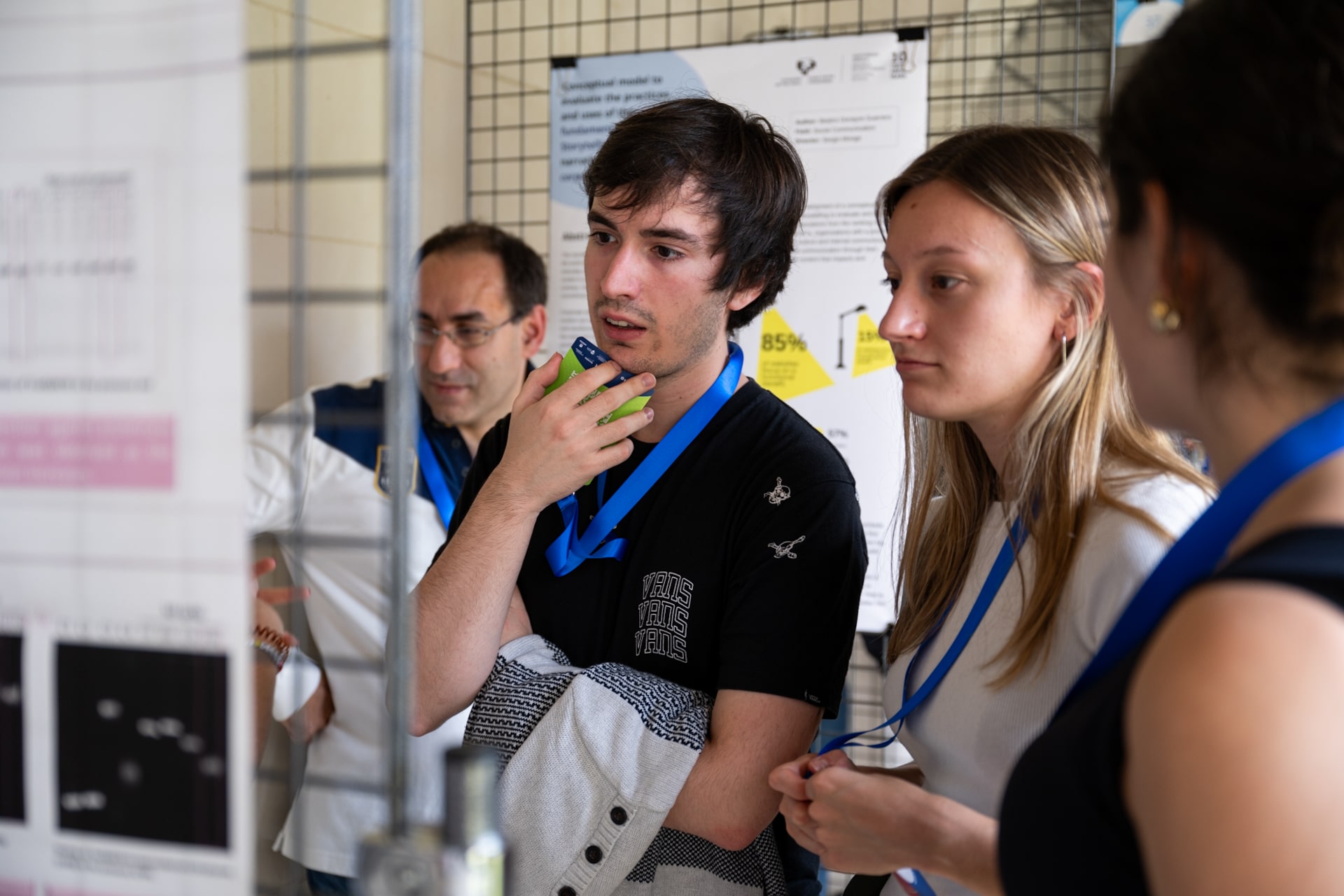
Participants of the EHU Euskampus Bordeaux Eguna at the poster exhibition. © Gautier DUFAU
Click here to see the posters' digital catalogue.
This cross-border campus has 110,000 students, 9,000 teaching and research staff and 5,000 members of technical management, administration and services staff.
Music, dance and languages.
The event concluded with the performance of MItologia Txikiak by BILAKA, a group of dantzaris and musicians based in Baiona that seeks to promote music and the development of dance, exploring the roots of Basque dance from an avant-garde point of view. Two dantzaris and an alboka gave life to strange characters, which were as wonderful as they were disturbing, with a rhythm in crescendo that kept the audience engaged until the final showdown full of sound and dazzling colour.
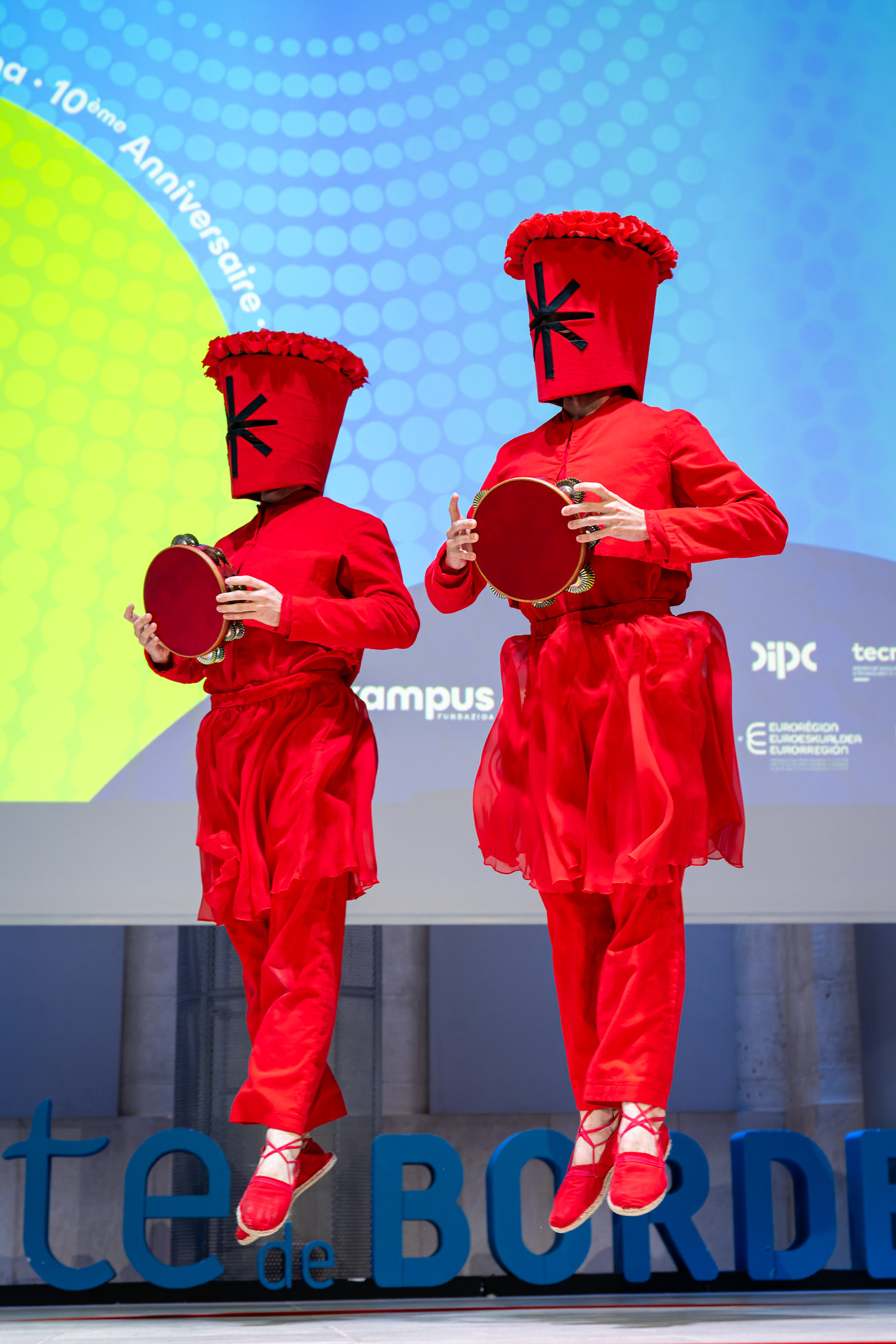
BILAKA dantzariak
It is worth highlighting the quadrilingual format of the event, with simultaneous interpretation into the three local languages: Basque, French and Spanish. English as a lingua franca is not translated, as is customary on the cross-border campus. The alternation of languages by presenters as well as participants made this a flexible and open event, in which language contact does not generate language conflict, thus contributing to the awareness of linguistic diversity and the inclusive spirit of this pluralistic Europe.
More information about the Euskampus Bordeaux Campus
Click here for the photo report.
Click here to see the summary REEL of the encounter.

Subscribe to Newskampus
And get our latest news in your inbox.
